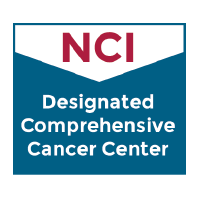
Lynch Syndrome
Some families have multiple relatives who have colon cancer or other types of cancer. These cancers may be caused by a rare inherited genetic condition called Lynch syndrome, also known as hereditary nonpolyposis colorectal cancer (HNPCC). Lynch syndrome significantly increases your chance of developing colon cancer, and often earlier than the general population – before the age of 45. Nearly 3 percent of all colon cancers are caused by Lynch syndrome. It may also increase your risk of other cancers, such as endometrial and ovarian cancer in women.
The good news is that genetic screening and testing, available at major medical centers, detects Lynch syndrome in an estimated 95 percent of people.
By determining whether you and your family members have Lynch syndrome, you can take steps to seek appropriate medical care and surveillance, such as regular and consistent colonoscopies and check-ups at earlier ages. This can help to detect and prevent cancer, and ultimately, to save lives.
Our Approach to Lynch Syndrome
UCSF offers comprehensive genetic counseling for families with a history of cancer. Our goal is to help you manage your cancer risk. If you need to be screened for Lynch syndrome, our team can assess your personal and family history, and if appropriate, conduct genetic testing.
If you have the testing, genetic counselors and doctors will design a risk management program for you. It will include individualized recommendations for cancer screening, guidance on prevention and options for treatment. We will also counsel you on how to share this information with other family members who may be at risk.
Awards & recognition
-

Among the top hospitals in the nation
-

Best in Northern California for cancer care (tie)
-

Designated comprehensive cancer center
UCSF Health medical specialists have reviewed this information. It is for educational purposes only and is not intended to replace the advice of your doctor or other health care provider. We encourage you to discuss any questions or concerns you may have with your provider.





